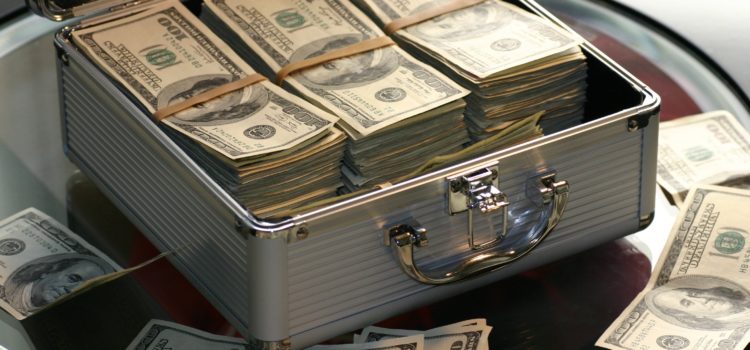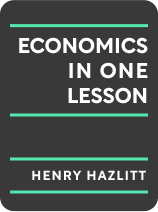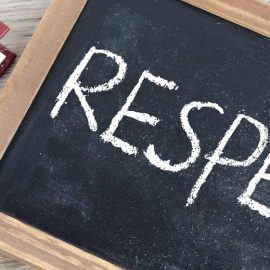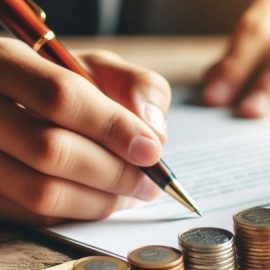

This article is an excerpt from the Shortform book guide to "Economics in One Lesson" by Henry Hazlitt. Shortform has the world's best summaries and analyses of books you should be reading.
Like this article? Sign up for a free trial here .
How does saving affect the economy? Do you think keeping your money in a saving account or in investments has a positive or a negative effect on the country’s national wealth?
Saving is generally seen as a bad thing for the economy because savings deprive spending on goods and services, thereby hurting national wealth. However, this is a fallacy—savings do the exact opposite in the long run.
In this article, we’ll take a look at what actually happens when people choose to hold on to their money.
To Save or Not to Save?
When consumers spend money on goods and services, they are supporting that business, the wages of its employees, and its productivity. But what happens when they choose to hold on to their money? How does saving affect the economy?
Some economists have stated, then, that saving money deprives the economy of the boost that spending creates—but this incorrectly assumes that savings sit idly in a vault.
In reality, people either save money through investing it or putting it into a savings account. Investments directly support industry by injecting money into a business and enabling it to buy capital (such as factories and machinery) to increase production. Banks use deposited money to fund loans for businesses, which enable those businesses to also invest in capital. In either scenario, savings increases the capacity for production, which increases employment and collective wealth.
In fact, savings does more to increase production capacity than direct spending does. To illustrate this, consider the difference between two brothers who receive inheritances that provide each one $100,000 per year. The first brother, Adam, spends on gifts, luxuries, and services that not only use up all of his cash, but also some of his capital. After several years, Adam is broke and has no money left to support the economy or himself. By contrast, the other brother, Brian, spends $50,000 a year and divides the rest between investments and a savings account. By the time Adam has gone through all of his money, Brian’s investments have grown his income, which allows him to continue supporting productivity and employment through his savings and further investments.
If a large portion of the population suddenly stopped saving and began spending that money on goods instead, the increased demand would raise the price of consumer goods, and the decreased investment in production would lower the price of capital goods. In the short term, the job losses in capital goods industries would increase unemployment; in the long term, this shift would reduce overall production.
Hoarding Money Doesn’t Cause Economic Depressions
Often, people believe that saving money does nothing for the economy because they are thinking of saving as hoarding money—as in, stashing cash in shoeboxes and under mattresses. This kind of saving typically happens after an economic downturn, when people are reluctant to spend or invest because:
- They worry that the economic recovery could relapse, and they want to conserve their money in case they lose their jobs.
- They see how the downturn made prices drop, and they expect the prices to continue falling, so they are waiting for goods to get even cheaper before they buy.
Similarly, banks hold money without lending or investing it only in response to an economic downturn, when they fear that the economic instability makes potential investments too risky. People often blame cash hoarding for causing and prolonging economic depressions, but, in reality, it is the result of economic depressions—the real cause is instability created by government policies. Cash hoarding accounts for such a small percentage of the total money in the country that its impact on the economy is generally insignificant.
Interest Rates Balance Savings and Investment
Interest rates equalize savings and investments in the same way that prices equalize supply and demand. Interest rates are simply the price of loaned capital. When savings rise, banks can offer lower interest rates to borrowers, which enables more businesses to take out loans in order to invest in capital.
On the other hand, fears of high interest rates often raise concerns that companies will be unable to borrow and invest in improving production, and that this will reduce output, employment, and collective prosperity. In response, the government may impose policies that artificially lower interest rates—but the impacts of this tampering are the same as price-fixing:
- Demand for loans increases among businesses, because the interest rates are so affordable.
- Demand for capital increases, because more companies have loans to invest.
- Supply of capital decreases, because companies buy more capital with their loans.
- Savings decrease, because low interest rates disincentivize savings.
Additionally, the only way for the government to create artificially low interest rates is to substitute real savings with bank credit or newly created dollars. As discussed in the last chapter, creating money brings inflation, which lowers the value of the money being borrowed. When lenders see the value of money decreasing, they raise interest rates to compensate for the fact that the money they lend will be less when they get it back. In other words, policies that artificially lower interest rates eventually lead to higher interest rates.

———End of Preview———
Like what you just read? Read the rest of the world's best book summary and analysis of Henry Hazlitt's "Economics in One Lesson" at Shortform .
Here's what you'll find in our full Economics in One Lesson summary :
- A clear, concise explanation of the secondary consequences of a range of economic policies
- How labor-saving technology actually creates more jobs
- How saving money supports the economy more than spending it






